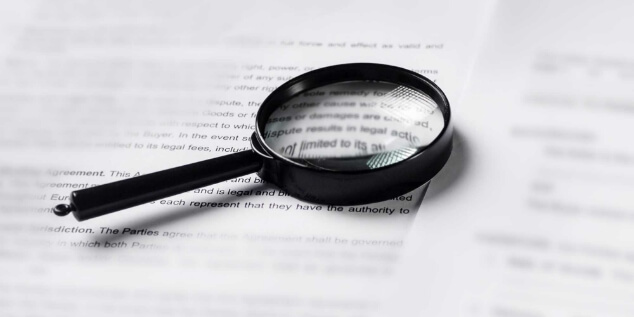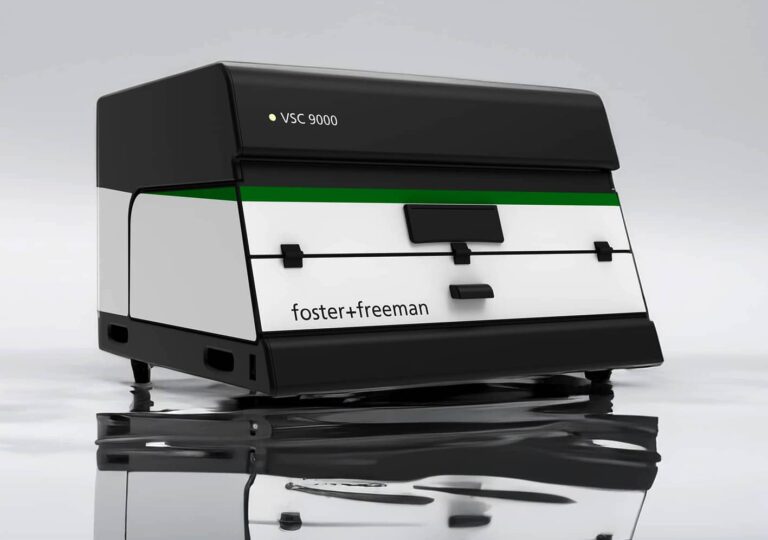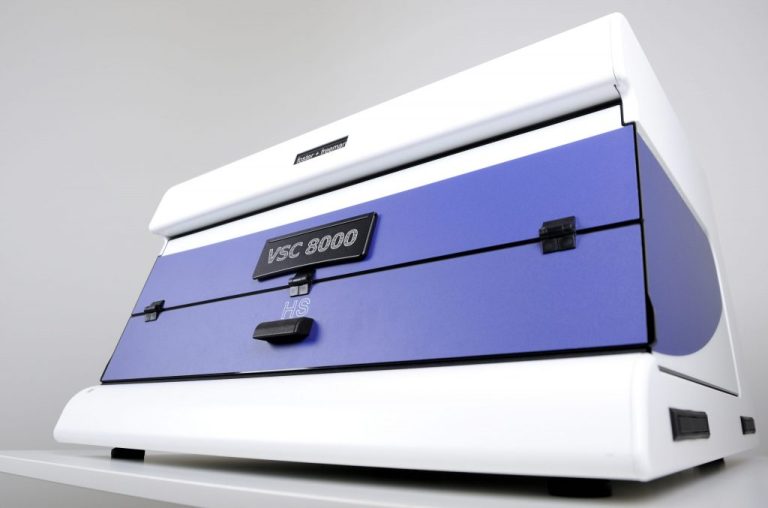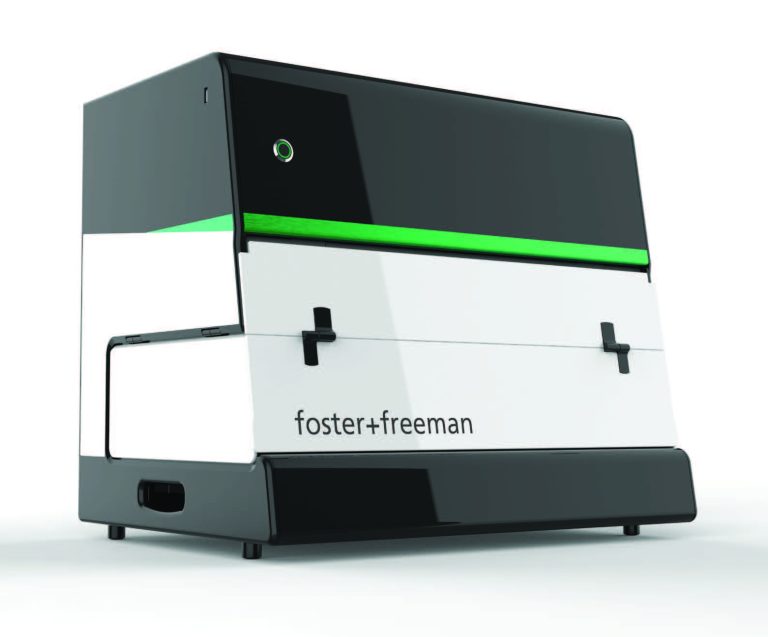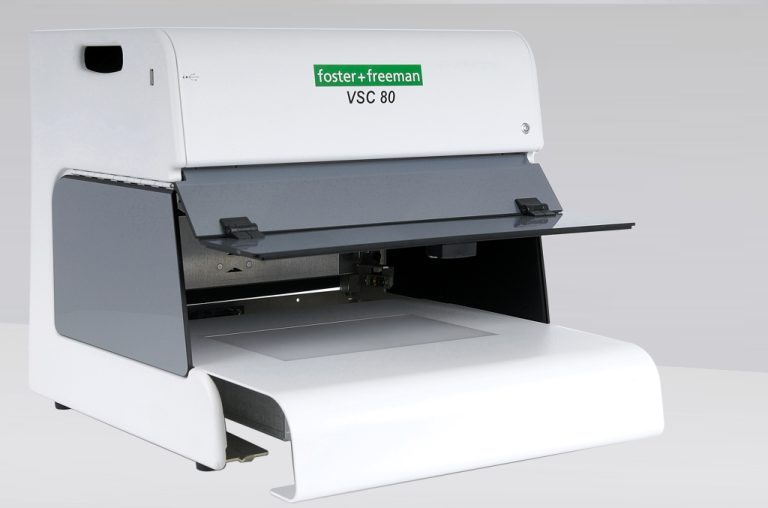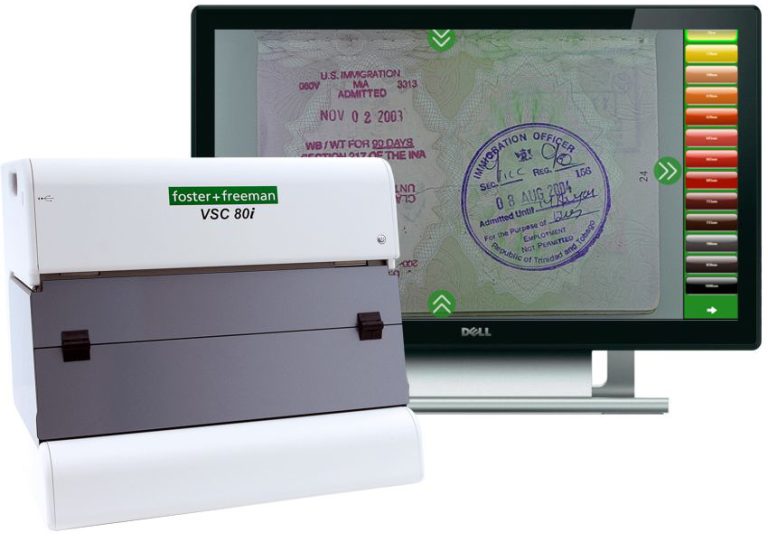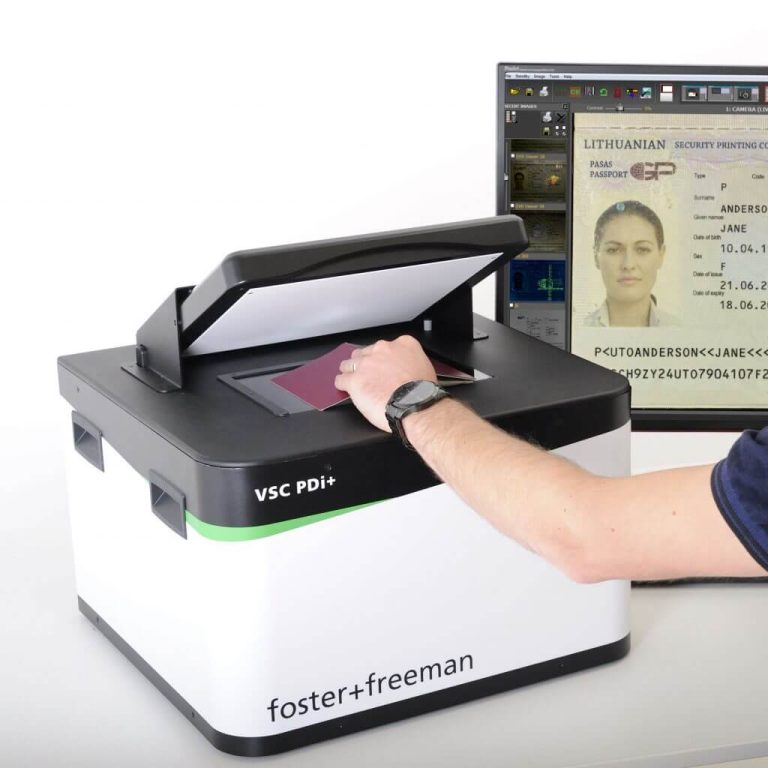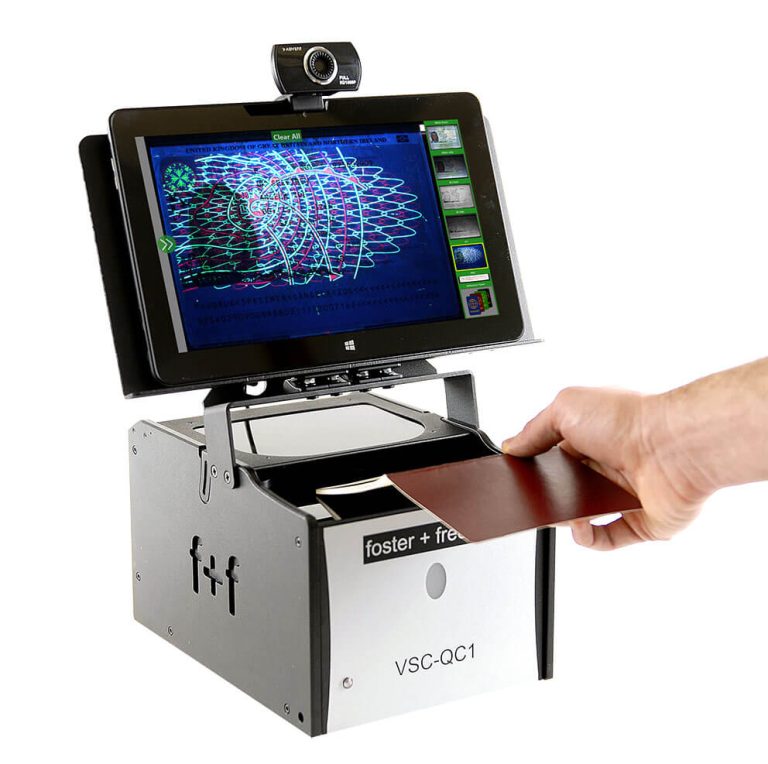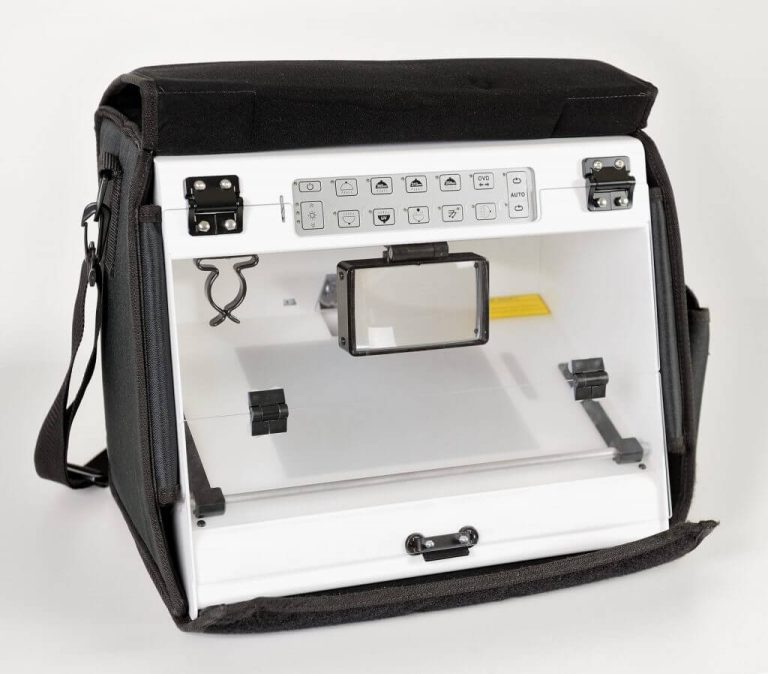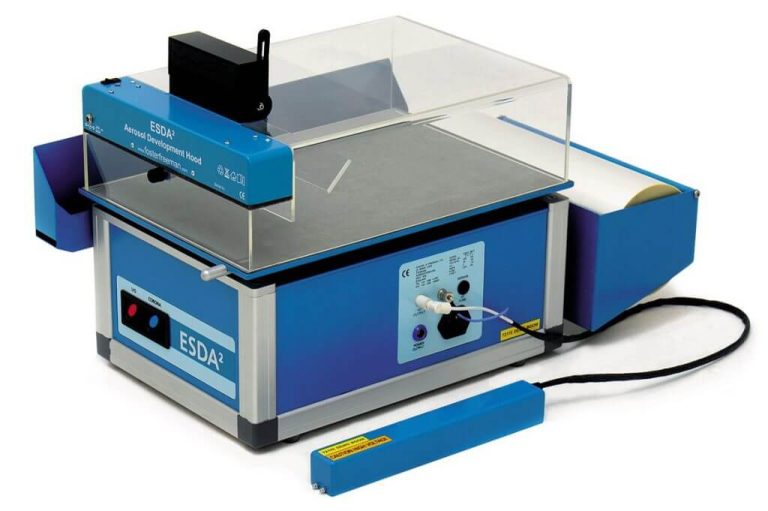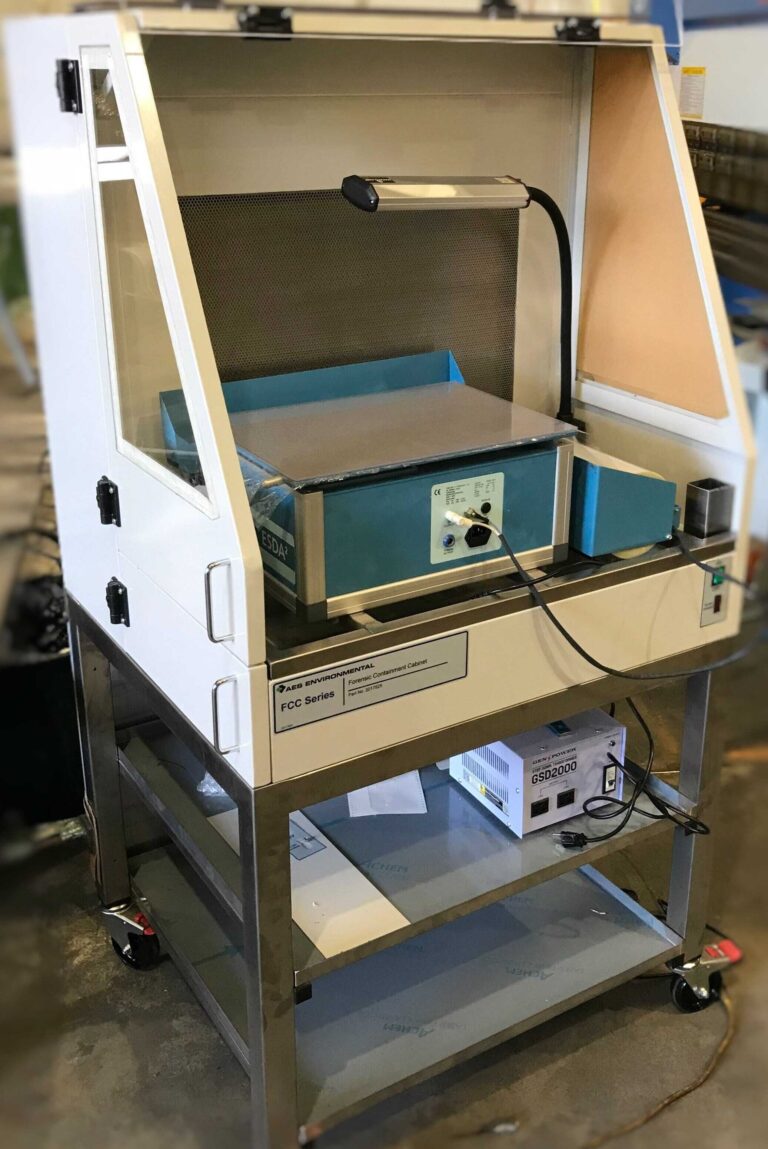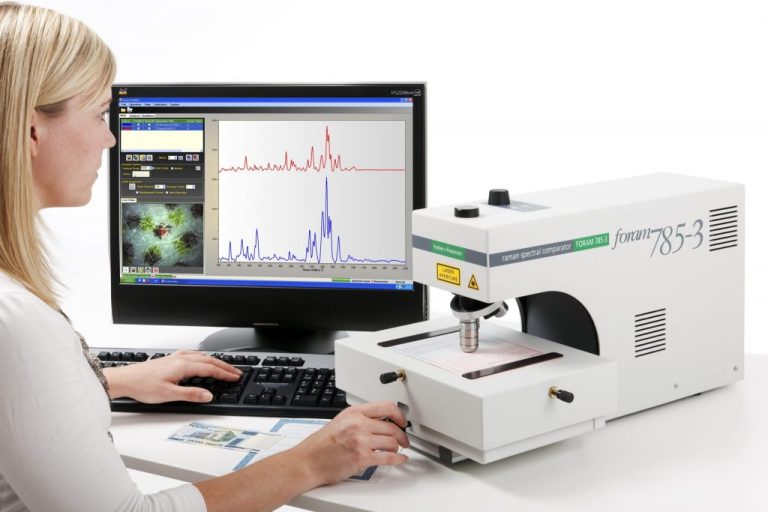VSC9000
NEW!
Equipped with a high-performance optical and illumination system, VSC9000 enables the examiner to conduct multi-spectral examinations of documents in microscopic detail to authenticate legitimate documents, reveal sophisticated counterfeits and to identify evidence of tampering or manipulation with unparalleled accuracy. Engineered with cutting-edge technology at our UK facility, VSC9000 workstations leverage unique patented innovations to deliver unparalleled forensic capabilities. (PAT ID. GB2602793A) Following over 40 years of VSC design, innovation and refinement, VSC9000 provides a comprehensive toolkit to address longstanding and modern document security challenges.
VSC8000/HS
Foster+Freeman’s most advanced QDE workstation to date, the VSC8000/HS combines sophisticated digital imaging and multi-wavelength illumination technology with a clear and efficient software interface, to provide a complete solution to the examination of all questioned documents. Cutting-edge examination techniques including, multi-spectral imaging (from UV through the visible to IR), 3D topographical imaging, hyper-spectral imaging, and full-spectrum colour analysis, may all be used to authenticate questioned documents, detect evidence of tampering, and to identify counterfeits and frauds.
VSC900
NEW!
Introducing a new VSC workstation for the hybrid physical and digital inspection of travel and identity documents, designed to meet the complex demands of immigration/border security applications. The first in a new generation of hybrid VSC document examination systems, the VSC900 provides examiners with a comprehensive suite of traditional and advanced tools for the interrogation and verification of passports, ID cards, visas, residence permits, and other questioned documents.
VSC80/FS
The compact forensic QDE workstation and a complete solution to the forensic examination of questioned documents. The VSC80/FS is an ideal instrument for the analysis and comparison of handwriting, signatures, photocopied and printed documents, banknotes, cheques and secure documents including passports, ID cards, driving licenses, and breeder documents. The VSC80/FS provides a comprehensive suite of examination facilities within a compact yet powerful workstation.
VSC80i
The VSC80i is an intelligent touch screen workstation for forensic-level examination of travel and identity documents. With advanced forensic-level technology, operated via a simplified touchscreen interface, the VSC80i provides a complete solution to the examination of secure travel and identity documents including passports, ID cards, visas, entry permits, and drivers licences.
- Examine and Authenticate Documents
- Identify Fakes and Counterfeits
- Decode MRZ, e-Chip and Embedded Data
VSC PDi+
For perfect digital capture of travel and identity documents, the VSC PDi+ captures ultra-high-resolution images of documents under a selection of light sources, storing them together with biometric and embedded data to create a full digital record of the physical document. Examination-quality digital copies of travel and identity documents can be interrogated on-the-spot or shared across a secure network for remote examination by users of any connected VSC instrument.

